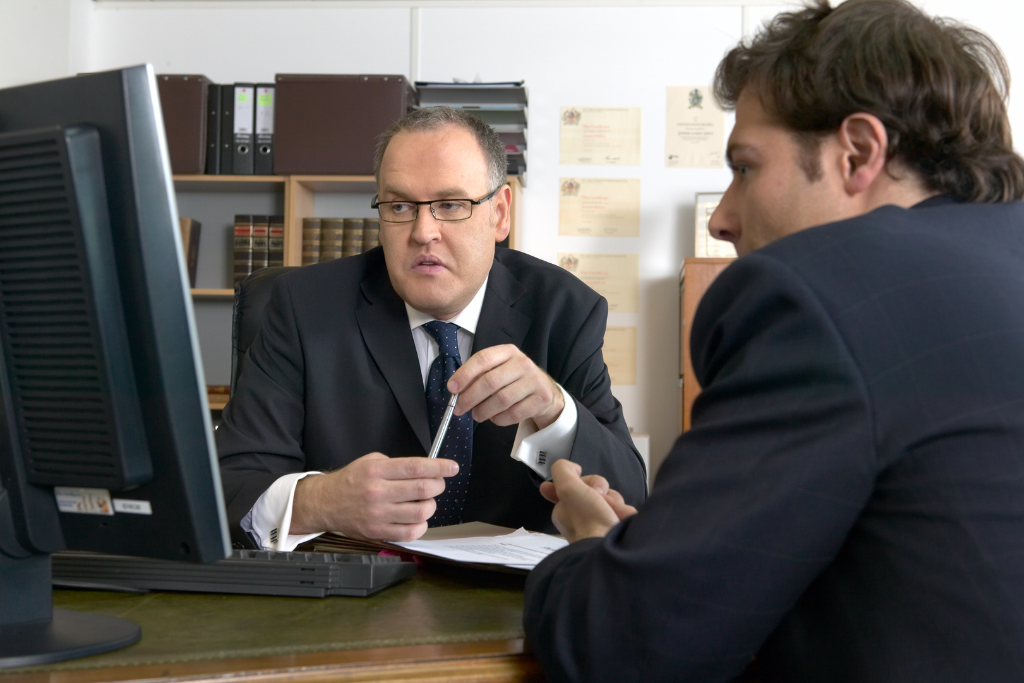
How Much are Property Solicitor Fees When Selling a House?
Looking at solicitors fees when selling a house, how conveyancing fees work and how we can help you sell for free…

Alexandra Ventress ★ Digital Content Writer
Table of Contents
When it comes to selling your home, there are lots of potential costs that you will need to factor into the process. One such cost is your property solicitor. It is their job to handle the legal side of your house sale and to ensure that everything progresses as it should.
In this blog post, we will be looking at the average solicitor fee for selling a house, a breakdown of solicitor fees when selling a house, and how we can help you avoid them.
Looking for a quick answer? Check out our interactive menu to the right!
Why do I need a property solicitor to sell my house?
Whilst it is not a legal requirement, it is heavily recommended that you hire a solicitor when selling your home. The process of selling a property involves a lot of legal legwork in order to transfer ownership that if you do the conveyancing yourself has the potential to go wrong. If done incorrectly, you can delay your property sale or even cause it to fall through. If this were to occur the blame would all land on your shoulders.
What does a property solicitor do?
A property conveyancer or solicitor is responsible for the legal aspects of selling a property. It is their role to keep you updated about the sale progression and will keep you informed by answering any questions you may have about the process.
As part of the conveyancing process, your solicitor will perform the following legal work:
- give legal advice
- answer any pre-contract questions or queries you may have
- draft contracts
- handle contracts
- pay off the remaining mortgage
- exchange contracts
- organise a completion day
- pay Land Registry fees
- obtain title deeds
It will be over to the buyer’s solicitor to arrange any conveyancing searches that will need to take place.
What are the property solicitors fee for selling a house
Solicitor charges for selling a house will typically be split into two different charges; legal fees and disbursements. These are:
This is the standard rate that property solicitors will charge when selling a house
These are classed as third-party costs and cover services such as searches
What are the average solicitor fee for selling a house 2023?
When it comes to solicitors fees when selling a house, the amount that you will pay in conveyancing fees will vary widely from solicitor to solicitor. There is no one size its all answer, as fees will be dependent on the property you are selling, how complex the sale will be, the location you are selling in, as well as which solicitors you use. According to data from CompareMyMove, the average solicitor fee for selling a house is approximately:
| Fees | Cost |
|---|---|
| Solicitors legal fees | £1,270 |
| Conveyancing Disbursements | £88 |
| Potential Other Costs | £322 |
| Total | £1,690 |
Disbursement fees for conveyancing
You will be pleased to know that you will need to pay fewer disbursement fees if you are selling and not buying. Below is a list of the main disbursements you can expect to pay when selling.
Anti-money Laundering Checks - £5
Regardless of whether you are buying or selling a house, an anti-money laundering check is a standard check that will be carried out by your conveyancing solicitor that is to ensure that you are not money laundering.
Bank Transfer Fee - £40
Another fee that you will need to get familiar with when selling a house is a bank transfer fee. This will be payable whenever your solicitor needs to transfer money over £60,000, such as when they are paying off your mortgage or paying the final sale funds to your account. Exactly how much this can cost varies between £25 – £45.
Mortgaged Property Supplement Fee - £220
If when selling your home you still have a mortgage, then your solicitor will be required to correspond with your mortgage lender in order to process your mortgage redemption.
Title Register Copy - £6
As part of the selling process, your conveyancer will need to access up-to-date copies of the freehold Title Register and died Title Plan. They prove you own the property you are selling and can be found on HM Land Registry. They cost £6 and will consist of a plan of the property as well as a plan of the property.
What about if the conveyancing process is more complex?
If you have a more complex house sale on your hands then you may end up paying slightly more to sell your house. Certain aspects of the sale that will cost you more should be set out at the start by your solicitor, such as Shared Ownership. Some fees, such as delayed completion fees, may crop up further down the line.
Below are some of the most common fees that you may be charged:
| Service | Cost |
|---|---|
| Remortgage | £500 |
| Shared Ownership | £330 |
| Unregistered Property Fee | £100-£200 |
| Delayed Completion | £100-£200 |
| Indemnity Insurance | Varies |
| Transferring Equity | £530 |
When do I have to pay conveyancing fees?
When it comes to hiring a property solicitor, it is not unusual to be required to pay a deposit of up to 20% of the conveyancing fees. Once the house sale has been completed, you will then settle the rest of the bill. If you have a fixed fee conveyancer, then you will know the amount you will be required to pay in advance, and if you are using a no sale no fee solicitor then you will have nothing to pay if the sale falls through.
How do I find the right solicitor?
When it comes to looking for the right solicitor, there are a few avenues that you can explore in order to find the solicitor that is right for you:
Shop around
The first step you should take when finding the right solicitor is to shop around for quotes. Have a look at the different solicitors online and in your area, weighing up the different costs.
Check Reviews
You should also look at the different reviews for any conveyancers you are thinking of going with, being sure to look at both positive and negative reviews in order to get the best idea about the level of service that they offer. When searching for reviews, look at a variety across different channels, such as Trustpilot, Google reviews, and their own website. Whilst this is not the case for most companies, some may not be entirely truthful so be wary of sites where the reviews are all 5 stars with no complaints. If something is too good to be true it often is, and on the Trustpilot watchdog page, they have this to say about false reviews: “Use reviews with other sources and never replace common sense. If a company’s reviews are all five stars, with absolutely no negatives, question whether they can get it right every single time.”
Ensure that fees are itemised
You need to ensure that any quotes you receive are itemised and not missing any hidden costs. You should be aware of how much the bill should roughly cost, and if you are unsure ask for it to be itemised.
Regardless of who you decide to use, you should always choose a solicitor who is regulated by one of the following companies in order to ensure your sale is progressing correctly:
- CLC
- LSNI
- SRA
- LSS
- CILEX
How do you know if a solicitor is good or not?
When it comes to finding a conveyancing solicitor, you need to ensure that they are the right choice for you. Below are some of the ways that you can determine whether a solicitor is the right choice for you or not:
Local knowledge
A good solicitor will have a strong knowledge of the local area. They should understand the local area, and be aware of any changes that may be occurring that can affect the market value of your home.
Jargon free
It is your solicitor’s job to ensure that you understand the selling process. This means they should not blind you with jargon, and instead should take the time out to explain any parts of the process that you do not fully understand.
Communication
A good solicitor will also maintain communication with you throughout the selling process. They should be in touch often, keeping you up to date with proceedings and keeping you aware of the next steps.
Fee transparency
When you use a good property solicitor, they should be honest and upfront about any fees that you will be required to pay. This means that all costs and fees should be laid out in agreement.
Or, you can bypass the hassle and sell with us! We are The Property Selling Company, an online estate agency that wants to change the way you feel about selling houses. We firmly believe that selling a house should be three things; fast, effortless, and free. That’s why we keep this at the heart of what we do, by providing a tailored service to suit your needs, at no extra cost for you.
Sell to The Property Selling Company
Or, you can bypass the hassle and sell with us! We are The Property Selling Company, an online estate agency that wants to change the way you feel about selling houses. We firmly believe that selling a house should be three things; fast, effortless, and free. That’s why we keep this at the heart of what we do, by providing a tailored service to suit your needs, at no extra cost for you.
Our dedicated team of property experts will work alongside you throughout every step of the house selling process, covering everything, so that you won’t have to. You can say goodbye to the days of expensive solicitor fees and legal work, as when you go through one of our approved solicitors we cover all of your legal fees for you.
We market your property on popular property portals such as Rightmove and Zoopla, organise viewings, cover legal fees, and negotiate better deals, all for free!
So if you are looking to sell your home, get in touch today and fill out one of our free, no-obligation forms!


